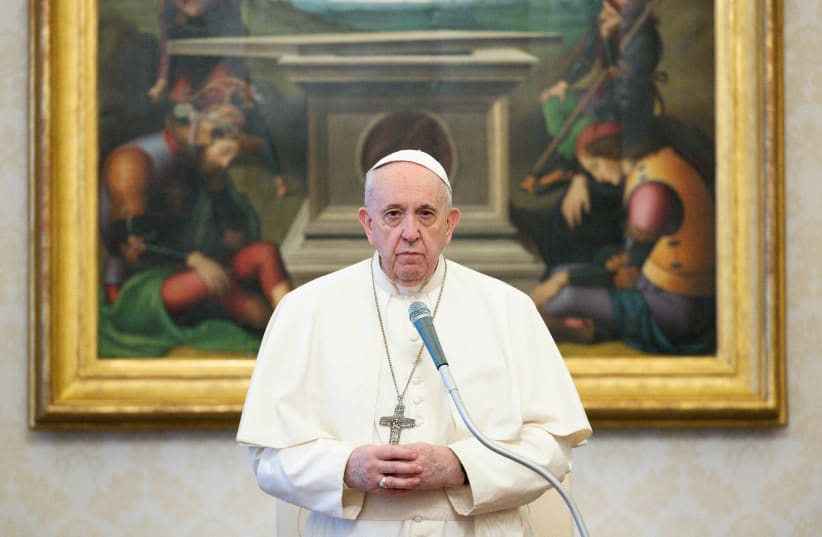He spoke three weeks after displays of antisemitism surfaced at the U.S. Capitol riot on Jan. 6 and two weeks after one of Montreal's largest synagogues was vandalized and almost set on fire.
Speaking at his general audience, held inside the papal library because of coronavirus restrictions, Francis said it was imperative that the world did not forget.
"To remember is an expression of humanity. To remember is a sign of civility. To remember is a condition for a better future of peace and fraternity," said Francis, who visited Auschwitz in 2016.
The Nazis and their allies murdered around 6 million Jews, as well as others, in German-occupied Europe.
More than a million people, most of them Jews, were killed at Auschwitz in southern Poland, which was liberated by Soviet troops on Jan. 27, 1945. The vast majority were gassed to death.
Francis said society should never let its guard down against the dangers of nationalism.
"To remember also means being careful because these things can happen again, starting with ideological proposals that claim to want to save a people but end up destroying a people and humanity," he said.
"Be wary of how this path of death, extermination and brutality started," he said, referring to the Nazis' rise to power in the 1930s on a wave a extreme nationalism.
At the US Capitol riot, some supporters of former President Donald Trump wore clothes bearing antisemitic messages or displayed Nazi symbols.One wore a T-shirt reading "Camp Auschwitz" and another wore a T-shirt with the inscription "6MWE," a far-right acronym that stands for "6 Million Wasn't Enough."
